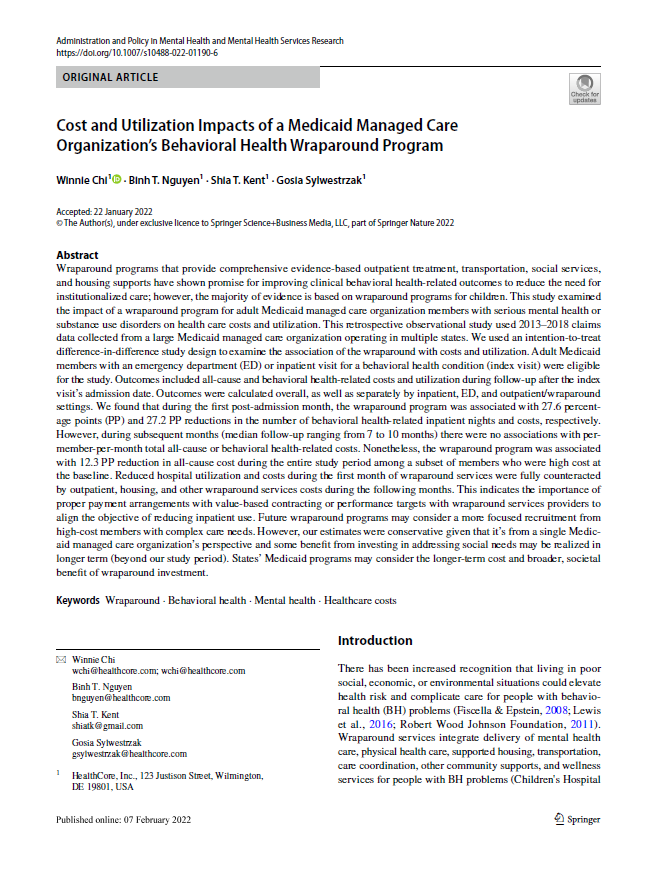Headline
Behavioral health wraparound program led to reduced utilization and costs in first month after an emergency department or behavioral health admission, but mixed results occurred in subsequent months.
Context
Wraparound programs for adults with serious behavioral health conditions may provide evidence-based outpatient treatment, transportation, social services, and housing support. Under traditional fee-for-service reimbursement, the use of wraparound services may leave managed care organizations (MCOs) at risk if the wraparound services do not result in a reduction of emergency department visits or institutionalized behavioral health care. This study assessed whether a wraparound program reduced hospital utilization and costs for adult Medicaid MCO enrollees with serious behavioral health conditions.
Findings
Implementation of a wraparound services program led to reduced utilization and costs during the first month after an inpatient or emergency department visit related to a serious behavioral health disorder, though there was no association with cost-related outcomes in subsequent months. Notably, the group of members with the highest health care costs at baseline experienced lower costs and utilization after receiving wraparound services, which suggests that these services may be most valuable when focused on individuals with the most complex needs.
Takeaways
Wraparound services can improve cost and utilization outcomes for adults with complex behavioral health needs and a history of high acute care utilization. Payers may consider establishing value-based payment arrangements for wraparound providers to incentivize better program engagement and efficiency.


